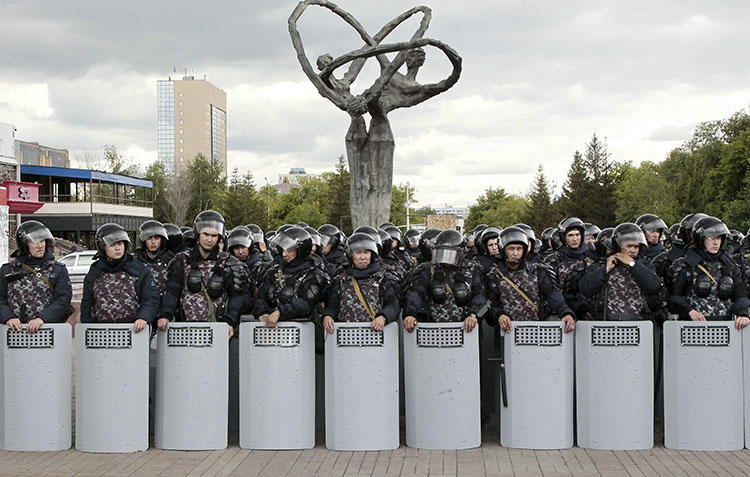New York, July 22, 2019 — Telecommunications providers in Kazakhstan’s capital, Nur-Sultan, have requested internet users to install a security certificate issued by government authorities onto their personal devices, which could compromise their digital security, according to a report by the BBC and Adil Nurmakov, a political scientist and digital media expert based in Nur-Sultan, who communicated with CPJ by email.
Local mobile service provider Kcell characterized the certificate in a statement as a measure to “protect internet users from content that is prohibited by the laws of the Republic of Kazakhstan, as well as from malicious and potentially dangerous content.” Security certificates are typically used to encrypt internet traffic so that it cannot be read by a third party or tampered with; installing a government-issued certificate could “allow authorities to decrypt the data, analyze it and re-encrypt it before sending it to its final destination,” the BBC reported.
“This so-called security measure looks much more like an attempt to increase the government’s censorship and surveillance capabilities,” said CPJ Advocacy Director Courtney Radsch in Washington, D.C. “Authorities in Kazakhstan have a long history of jailing, censoring, and harassing journalists, and this effort to protect citizens from ‘dangerous content’ should be viewed with the utmost skepticism.”
Ablaykhan Ospanov, Kazakhstan’s vice-minister of digital development, innovation, and aerospace industry, told journalists at a press conference that installing the certificate was not mandatory, according to a report by the U.S. Congress-funded Radio Free Europe/Radio Liberty. However, Kazakh internet users reported being redirected to web pages telling them to install the certificate, and Kcell said that users without the certificate could have problems accessing some parts of the internet, according to the BBC report.
CPJ emailed the Ministry of Digital Development, Innovation, and Aerospace Industry for comment but did not immediately receive a response.
CPJ has called on Kazakh authorities to revise the country’s laws regarding the dissemination of “false information,” which are often used to silence critical outlets and journalists.
